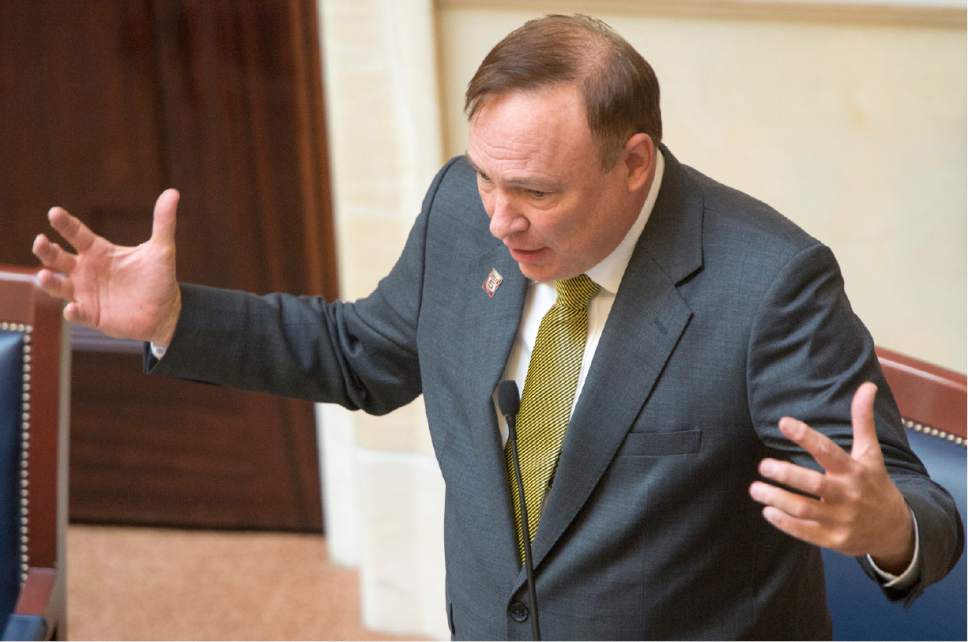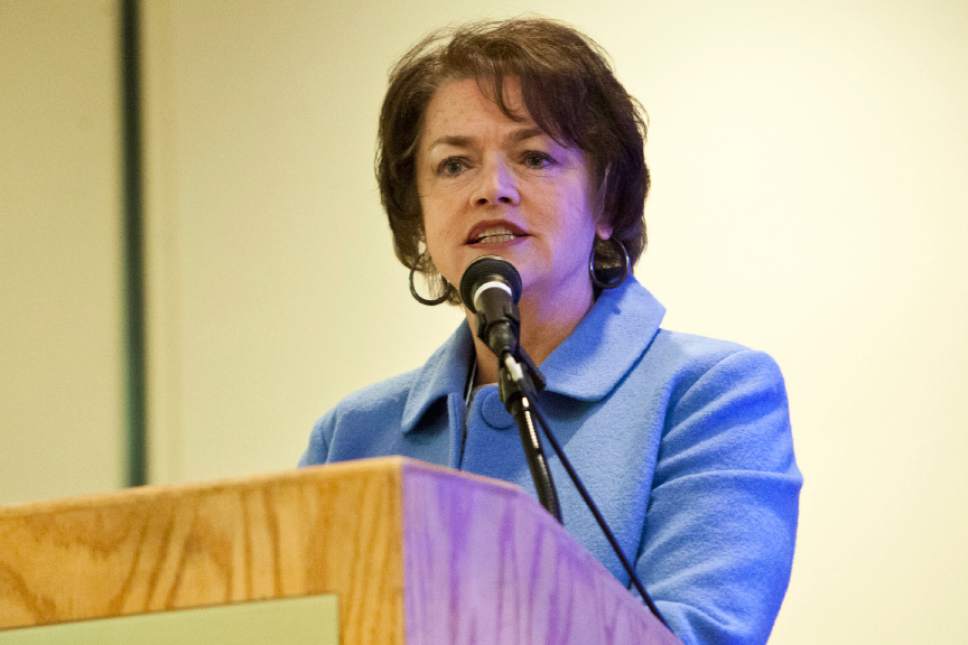This is an archived article that was published on sltrib.com in 2017, and information in the article may be outdated. It is provided only for personal research purposes and may not be reprinted.
State laws prohibiting single-party dominance of state boards would be stricken under a bill that gained preliminary approval of the Senate on Wednesday.
Current policy caps the number of members that can be from the same political party for certain boards and commissions. But HB11 would remove those restrictions, while prohibiting party affiliation from being a consideration for appointing new board members or commissioners.
The Utah House passed a different version of the bill earlier this month, meaning an additional vote in that body is required for passage after it receives final approval from the Senate.
Sen. Margaret Dayton, R-Orem, the bill's Senate sponsor, said HB11 would allow for the most qualified candidates to serve on boards and commissions independent of party affiliation.
"This is more inclusive for the nonaffiliated voters as well as the majority and minority parties," she said.
Her Democratic colleagues opposed the bill, saying it abandons a principle of state government that was intended to ensure diversity of opinion.
"We have become so partisan that just the mention of partisanship divides us," said Senate Majority Leader Gene Davis, D-Salt Lake City.
Sen. Jim Dabakis, D-Salt Lake City, said that behind the legal language of HB11 was an attempt to ensure conservative control of state boards.
"We understand exactly what's happening here," he said. "You understand it, I understand it, everybody understands it."
He said there are many Utahns who disagree with the Republican party, and their perspective and input is being dismissed.
"If there's only one perspective, if there's only one point of view, it hurts our state," he said. Republicans control the state Senate 21-5 and the House 62-13. They also hold every statewide office and all six congressional seats.
Just two Republican senators joined Democrats in voting against the bill.
But while the law may have been intended to promote diversity, the practical result has been an inefficient appointment method that leaves positions unfilled, said Sen. Jacob Anderegg, R-Lehi.
And by failing to properly staff board and commissions, Anderegg said, the state sends a message that their work doesn't matter.
"Many of these positions are sitting vacant and the governor's hands are tied," Anderegg said.
Sen. Todd Weiler, R-Woods Cross, said opposition to HB11 is based in a misunderstanding of what current law requires.
While there is a cap on the number of members from the same party, he said, the law does not require that multiple parties be represented.
"There is no bipartisanship requirement in the current code," Weiler said. "We are going to find the best people and we're not going to vet them just on their politics."
During debate in the House, HB11 was amended to maintain partisan diversity on several high-profile boards, including the Air Quality Board, Water Quality Board, Alcoholic Beverage Control Commission and the Commission on Service and Volunteerism. Most of those entities were returned to the bill's language on Wednesday, prior to the Senate's 21-7 vote.
Members of the House, who voted 51-21 in favor of the more limited bill, would need to sign off on the Senate's changes before the bill reaches the governor's desk. Just eight Republicans joined Democrats in opposing the measure.
Twitter: @bjaminwood





